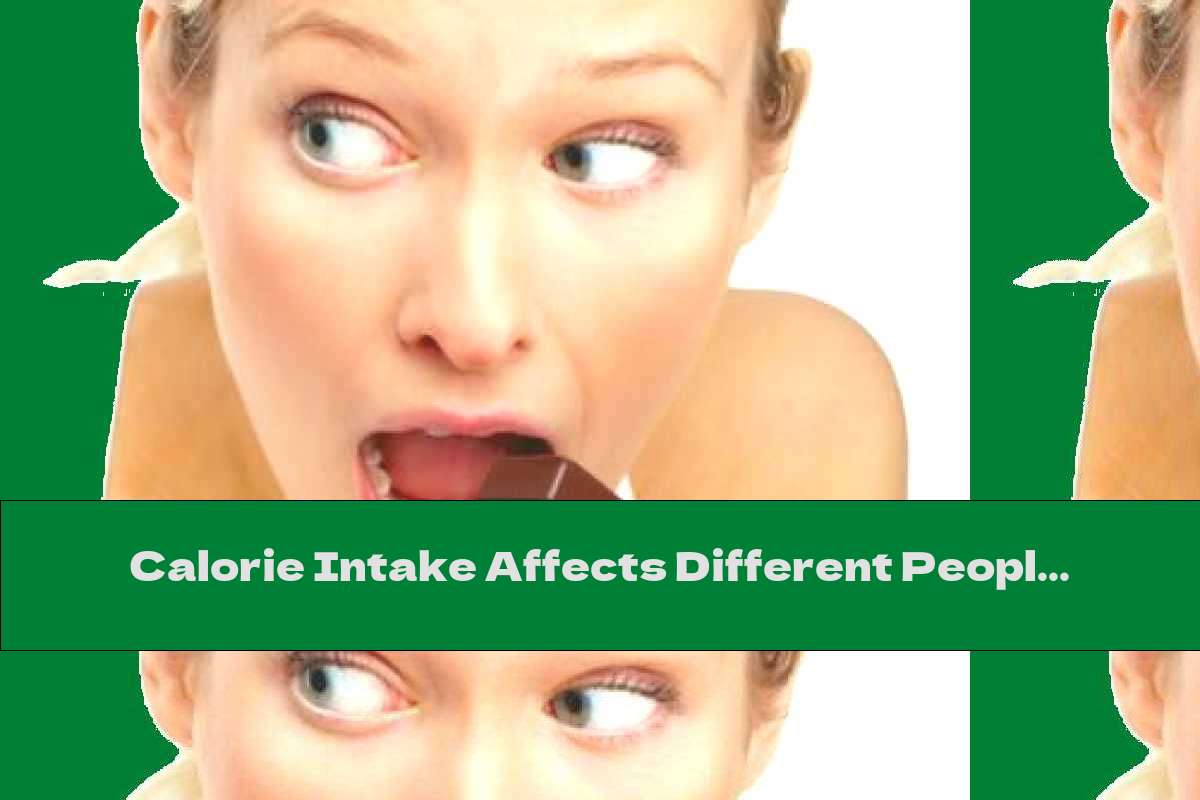Calorie Intake Affects Different People Differently
 Author: Ivan Red Jr.
Time for reading: ~3
minutes
Last Updated:
August 08, 2022
Author: Ivan Red Jr.
Time for reading: ~3
minutes
Last Updated:
August 08, 2022

Swedish physiologist has shown that people react differently to changes in diet and not everyone gains weight by eating high-calorie foods
Swedish physiologist Frederik Nyström conducted an experimental study, the results of which show that people react differently to changes in their diet. Nyström also found that not all people in the experiment gained weight after increasing their caloric intake.
The study involved 18 volunteers. For a period of several weeks, they had to limit their physical activity and eat only high-energy foods: burgers, french fries, ice cream, pastries and sodas. The daily energy intake of each of them was between 5,000 and 6,600 kcal, which is many times higher than the recommended one.
Before the experiment, during and after its termination, the participants underwent almost all known medical tests. The synthesis of nearly 30,000 proteins was measured and various enzymes were analyzed. With the help of new radiographic methods, the percentage of fat and muscle tissue in the body was measured, as well as changes in bone density.
It is well known that nutrition affects the psyche, so a number of psychological tests have been conducted. Experts have recorded a huge variety of emotional reactions of people eating more than they need.
The researchers found that the intake of extra calories did not lead to a large increase in weight in all volunteers. Obviously, the individual features of metabolism and metabolism are of leading importance for weight gain.
For example, one participant reported a 4.6 kg increase in body weight in one month, but half of them were due to accumulated muscle mass. It was also surprising that he had a lowering of his cholesterol levels. The man felt very tired and had difficulty performing any physical activity, and even with minimal effort, he began to sweat profusely.
Another participant had to withdraw from the experiment in advance. In just two weeks, he gained more than 15% of his weight, which was dangerous to his health.
None of the participants in the experiment experienced liver changes, which are considered typical when eating too heavy and fatty foods. Studies have shown a significant increase in the level of liver enzymes in the blood, which indicates a high load on the liver.
The body of some of the volunteers even managed to successfully cope with the additional intake of calories supplied by the consumption of large amounts of fat and carbohydrates. The extra calories were successfully "burned" by the body's temperature regulation. Almost all volunteers reported feeling a constant feeling of warmth and sweating more than usual.
Interestingly, the biggest difficulty for the volunteers was not the excessive amount of food they ate, but the lack of physical activity, although before the experiment only a small part of them exercised actively. During the survey, almost all said they had a strong desire to walk or ride a bike.
Also, a common problem for volunteers is lack of appetite and hunger. Psychological tests have shown depressive states characteristic of obese patients.
Special attention during the study was paid to the level of cholesterol in the blood. In the last few years, it has been argued that a significant reduction in blood cholesterol levels, with a change in diet and avoidance of fat, is not possible. Frederick Nyström's experiment once again confirmed this. In most of the participants in the experiment, the level of cholesterol and other fatty substances in the bloodstream increased slightly. For some, there was even a decrease in the "bad" and an increase in the content of the "good".
All this proves once again that the diet, as well as ways to reduce weight should always be chosen individually, taking into account the individual characteristics of the organism and its metabolism.
Related Articles
- The Nutritional Value of Avocado Calories: Benefits, Diet Tips, and Recipes
- The Ultimate Guide to Avocado Calories: Benefits, Recipes, and More
- The Ultimate Guide to Buffer 500 in Nutrition: Benefits, Sources, and Intake Recommendations
- The Nutritional Value of Ice Cream: Calories, Vitamins, and Healthy Alternatives
- The Nutritional Value of Bud Light: Calories, Alcohol Content, and More